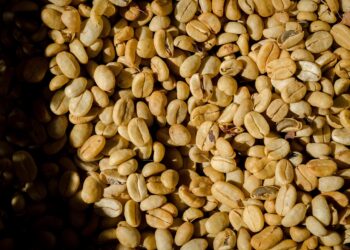Unlocking the Aroma: The Journey of Organic Coffee Beans
For coffee enthusiasts and connoisseurs alike, the pursuit of the perfect cup of coffee is an enduring quest. Among the variety of options available, organic coffee beans have emerged as a premier choice for those seeking not only flavor but sustainability and health benefits in their brew. In this comprehensive guide, we will explore the captivating journey of organic coffee beans from crop to cup, highlighting their environmental benefits, health aspects, and how they contribute to a superior aromatic experience.
The Origins of Organic Coffee
Organic coffee starts with beans grown without the use of synthetic fertilizers, pesticides, or herbicides. The philosophy behind organic farming prioritizes ecological balance and biodiversity, relying on natural processes that maintain soil fertility and plant health. This method of farming is typically more labor-intensive and requires a deeper understanding of local ecosystems.
Where is Organic Coffee Grown? Major producers of organic coffee include countries within the Bean Belt—Colombia, Ethiopia, Brazil, and Indonesia. These regions provide ideal growing conditions with rich soil, proper altitude, and a conducive climate, allowing organic coffee farms to thrive.
Processing Organic Coffee Beans
Once the organic coffee cherries are ripe and harvested, they undergo various processing methods to prepare the beans for roasting. These can include:
- Dry Processing: The entire cherry is left to dry in the sun, developing a sweet, complex flavor profile.
- Wet Processing: The pulp of the cherry is removed, and the beans are fermented and washed for a cleaner, brighter taste.
- Semi-washed: Combining aspects of both dry and wet, this method strikes a balance, affecting the final taste and aroma of the coffee.
Each of these methods significantly influences the taste and quality of the coffee, providing unique profiles that cater to different palates and preferences.
Roasting and Grinding
The transformation from green coffee beans to aromatic brown beans happens during roasting. Roasting organic coffee requires precision, as the natural sugars in the beans caramelize and complex flavors are developed. Small-batch roasting is often preferred for organic beans to ensure that each batch reaches its potential in flavor and aroma.
Grinding is equally crucial, as the grind size should match the brewing method to extract the optimal flavor. Freshly ground organic coffee is recommended for the best taste and sensory experience.
Health Benefits of Organic Coffee
Beyond taste, organic coffee offers myriad health advantages. With the absence of chemical residues that might be found in non-organic beans, drinkers of organic coffee expose themselves to fewer toxins. Additionally, organic coffee is often rich in antioxidants, which play a role in reducing inflammation and combating free radicals.
Environmental Impact
Choosing organic coffee also has positive implications for the environment. By avoiding chemicals, organic farming reduces pollution and soil degradation, promoting greater biodiversity. The shade-grown coffee, a practice often associated with organic farms, helps preserve habitats for many bird species, proving integral for ecosystem health.
Choosing the Right Organic Coffee
When selecting organic coffee, certifications such as USDA Organic, Rainforest Alliance, or Fair Trade USA should be sought. These not only confirm that the beans are grown according to organic standards but also support sustainable practices and fair compensation for farmers.
Single-Origin vs. Blend: Single-origin organic coffee offers distinct, location-specific tastes, while blends combine beans from various regions for a balanced profile. Depending on your taste preferences, you may choose one over the other.
Frequently Asked Questions About Organic Coffee
1. Is Organic Coffee Caffeine-Free?
No, organic coffee contains caffeine just like regular coffee. The organic aspect refers to how the coffee is grown and processed.
2. Does Organic Coffee Taste Better?
This can be subjective, but many argue that organic coffee provides a cleaner, more pronounced flavor profile due to the lack of chemicals and richer soil health.
3. How to Store Organic Coffee?
To maintain freshness, store organic coffee in an airtight container away from light, heat, and moisture. Grinding beans right before brewing also helps in preserving the flavor.
Conclusion: A Sustainable Choice
The journey of organic coffee beans is a testament to the intricate processes and diligent efforts put forth by farmers worldwide, aiming not just to preserve the environment but to enhance your coffee experience. By choosing organic, you participate in a sustainable agricultural movement that benefits both the planet and your health. So next time you sip your coffee, relish not just the taste but the entire journey of your organic coffee beans.
With the expanding market and increasing awareness about health and ecological impacts, the trend toward organic coffee shows no signs of slowing down. It remains a superior choice for those dedicated to quality and sustainability in their daily coffee ritual.






